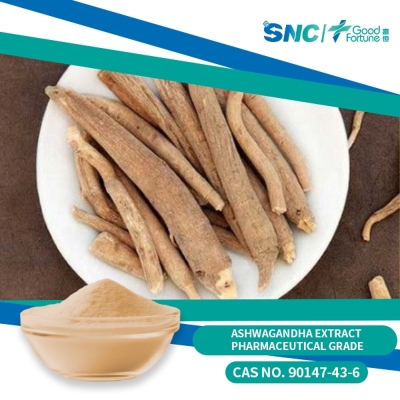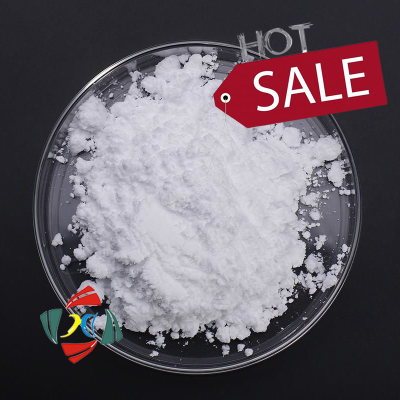-
Categories
-
Pharmaceutical Intermediates
-
Active Pharmaceutical Ingredients
-
Food Additives
- Industrial Coatings
- Agrochemicals
- Dyes and Pigments
- Surfactant
- Flavors and Fragrances
- Chemical Reagents
- Catalyst and Auxiliary
- Natural Products
- Inorganic Chemistry
-
Organic Chemistry
-
Biochemical Engineering
- Analytical Chemistry
- Cosmetic Ingredient
-
Pharmaceutical Intermediates
Promotion
ECHEMI Mall
Wholesale
Weekly Price
Exhibition
News
-
Trade Service
Written by | Edited by Wang Cong | Typesetting by Wang Duoyu | Shui Chengwen With the growth of age, people's learning ability and memory will also decline, especially after reaching old age
.
The increase in life expectancy has also led to an increasing incidence of Alzheimer's disease
.
Years ago, scientists generally believed that the adult mammalian and human brain was unable to repair and regenerate
.
However, later studies have shown that certain brain regions have the ability to generate new neurons, a process known as neurogenesis
.
The hippocampus of the adult mammalian brain has the ability to continuously form new neurons, repair itself, and regenerate itself, enabling learning, memory, and emotion regulation in adulthood
.
Since its discovery, neurogenesis has been envisioned as the fabled "fountain of youth", however, neurogenesis weakens with age, disease, etc.
, which is also thought to be associated with cognitive decline and depression, etc.
symptoms related
.
If a method can be found to restore the process of neurogenesis and restart the "fountain of youth", it will soon help improve learning and memory ability, and it is also expected to be used to treat neurodegenerative diseases such as Alzheimer's disease
.
On March 25, 2022, researchers at Baylor College of Medicine published a research paper titled: Oleic acid is an endogenous ligand of TLX/NR2E1 that triggers hippocampal neurogenesis in the Proceedings of the National Academy of Sciences (PNAS)
.
Neurogenesis in the hippocampus of the adult brain is fundamental to learning, memory and mood, but diminishes with age and certain diseases
.
The orphan nuclear receptor TLX/NR2E1 regulates the self-renewal and proliferation of neural stem and progenitor cells, but its ligand has not been identified, which hinders its research as a therapeutic target
.
The study shows that oleic acid produced by neural stem cells is an endogenous metabolic ligand for TLX, and oleic acid activates neurogenesis by binding to TXL, a discovery that opens the door to future TLX-based treatments that are expected to counteract aging by activating neurogenesis and cognitive impairment caused by disease
.
Previous research has shown that the master regulator of neurogenesis is a protein expressed by neural stem cells called TLX, which is a major player in the production of new neurons
.
However, we still do not know what stimulates TXL to perform this function, nor how to activate TLX
.
In this study, the research team found that oleic acid, a common fatty acid produced by neural stem cells, binds to and activates TLX, and experiments in mice showed that the binding of oleic acid to TLX increased both young and old mice.
Cell proliferation and neurogenesis in the hippocampus of the brain
.
The research team also said that although it is the main component of olive oil, olive oil is not an effective source of oleic acid, because the olive oil eaten does not reach the brain and play a role.
The oleic acid that works is produced by the brain cells themselves.
of
.
Damian Young, co-corresponding author of the study, said the discovery that oleic acid activates TLX has important therapeutic implications, which means that TLX is starting to become a druggable target
.
Further understanding of how oleic acid is produced in the brain and activates TLX could help us develop drugs that can enter the brain and stimulate neurogenesis
.
This therapeutic strategy is expected to be used to treat major depression, Alzheimer's disease and other neurological diseases, as well as to treat other diseases of the nervous system aging and degeneration, and restore cognitive ability
.
Prasanna Kandela, the first author of the study, said the discovery, in addition to being a scientific advance, is expected to have a real impact on patients who need treatment, and her own mother suffers from depression
.
Paper link: https:// Open for reprinting, welcome to forward to Moments and WeChat groups
.
The increase in life expectancy has also led to an increasing incidence of Alzheimer's disease
.
Years ago, scientists generally believed that the adult mammalian and human brain was unable to repair and regenerate
.
However, later studies have shown that certain brain regions have the ability to generate new neurons, a process known as neurogenesis
.
The hippocampus of the adult mammalian brain has the ability to continuously form new neurons, repair itself, and regenerate itself, enabling learning, memory, and emotion regulation in adulthood
.
Since its discovery, neurogenesis has been envisioned as the fabled "fountain of youth", however, neurogenesis weakens with age, disease, etc.
, which is also thought to be associated with cognitive decline and depression, etc.
symptoms related
.
If a method can be found to restore the process of neurogenesis and restart the "fountain of youth", it will soon help improve learning and memory ability, and it is also expected to be used to treat neurodegenerative diseases such as Alzheimer's disease
.
On March 25, 2022, researchers at Baylor College of Medicine published a research paper titled: Oleic acid is an endogenous ligand of TLX/NR2E1 that triggers hippocampal neurogenesis in the Proceedings of the National Academy of Sciences (PNAS)
.
Neurogenesis in the hippocampus of the adult brain is fundamental to learning, memory and mood, but diminishes with age and certain diseases
.
The orphan nuclear receptor TLX/NR2E1 regulates the self-renewal and proliferation of neural stem and progenitor cells, but its ligand has not been identified, which hinders its research as a therapeutic target
.
The study shows that oleic acid produced by neural stem cells is an endogenous metabolic ligand for TLX, and oleic acid activates neurogenesis by binding to TXL, a discovery that opens the door to future TLX-based treatments that are expected to counteract aging by activating neurogenesis and cognitive impairment caused by disease
.
Previous research has shown that the master regulator of neurogenesis is a protein expressed by neural stem cells called TLX, which is a major player in the production of new neurons
.
However, we still do not know what stimulates TXL to perform this function, nor how to activate TLX
.
In this study, the research team found that oleic acid, a common fatty acid produced by neural stem cells, binds to and activates TLX, and experiments in mice showed that the binding of oleic acid to TLX increased both young and old mice.
Cell proliferation and neurogenesis in the hippocampus of the brain
.
The research team also said that although it is the main component of olive oil, olive oil is not an effective source of oleic acid, because the olive oil eaten does not reach the brain and play a role.
The oleic acid that works is produced by the brain cells themselves.
of
.
Damian Young, co-corresponding author of the study, said the discovery that oleic acid activates TLX has important therapeutic implications, which means that TLX is starting to become a druggable target
.
Further understanding of how oleic acid is produced in the brain and activates TLX could help us develop drugs that can enter the brain and stimulate neurogenesis
.
This therapeutic strategy is expected to be used to treat major depression, Alzheimer's disease and other neurological diseases, as well as to treat other diseases of the nervous system aging and degeneration, and restore cognitive ability
.
Prasanna Kandela, the first author of the study, said the discovery, in addition to being a scientific advance, is expected to have a real impact on patients who need treatment, and her own mother suffers from depression
.
Paper link: https:// Open for reprinting, welcome to forward to Moments and WeChat groups







